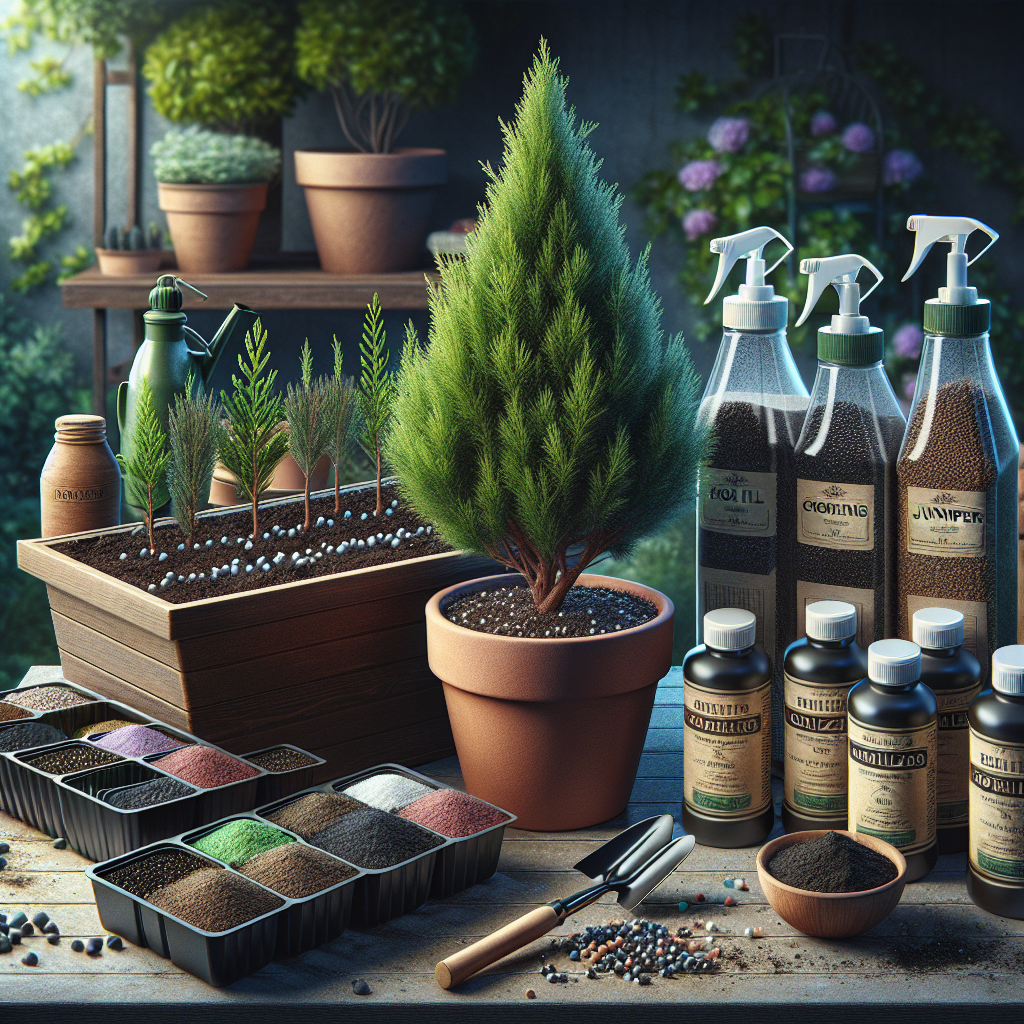Juniper trees are a popular choice for bonsai enthusiasts due to their resilience and attractive foliage. However, in order for these miniature trees to thrive, it is essential to choose the right soil and fertilizer for them. In this article, we will discuss the factors to consider when selecting soil and fertilizer for junipers planted in pots.
Soil Requirements for Juniper in Pots
Junipers have specific soil requirements that must be met in order for them to grow successfully. The main things to consider when choosing soil for juniper bonsai are drainage, aeration, and pH levels.
1. Drainage: Junipers thrive in well-draining soil that allows excess water to flow freely through the container. Waterlogged soil can lead to root rot and other issues, so it is important to choose a mix that drains quickly. A good bonsai soil mix for junipers should contain components like pumice, perlite, or coarse sand to aid in drainage.
2. Aeration: Junipers also require good aeration in the root zone to prevent suffocation of the roots. A well-aerated soil mix will allow oxygen to reach the roots and facilitate nutrient uptake. Adding components like bark or akadama can help improve aeration in the soil.
3. pH Levels: Junipers prefer slightly acidic soil with a pH level between 6.0 and 7.0. It is important to test the pH of your soil mix before planting your juniper bonsai to ensure that it falls within this range. If the pH is too high or too low, you may need to amend the soil with lime or sulfur to adjust it accordingly.
Fertilizer Requirements for Juniper in Pots
In addition to selecting the right soil mix for your juniper bonsai, it is also important to choose a suitable fertilizer regimen that meets the tree’s nutritional needs.
1. Slow-release Fertilizer: Junipers benefit from a slow-release fertilizer applied during the growing season (spring through fall). Slow-release fertilizers provide a steady supply of nutrients over an extended period of time, which helps promote healthy growth without risking nutrient burn.
2. Balanced Fertilizer: When choosing a fertilizer for junipers, look for one that has balanced NPK (nitrogen-phosphorus-potassium) ratios. A balanced fertilizer will provide all essential nutrients in appropriate amounts without causing nutrient imbalances or deficiencies.
3. Organic vs Synthetic Fertilizers: Some gardeners prefer using organic fertilizers on their juniper bonsai due to their natural composition and slower release of nutrients. However, synthetic fertilizers can also be effective if used correctly and in moderation.
4. Frequency of Fertilization: Junipers should be fertilized every 4-6 weeks during the growing season with half-strength liquid fertilizer or according to package instructions for slow-release granular fertilizers.
In conclusion, selecting the right soil and fertilizer is crucial for ensuring the health and vitality of your juniper bonsai tree grown in pots. By considering factors such as drainage, aeration, pH levels, and nutrient requirements, you can create an optimal growing environment that will support healthy growth and development of your miniature tree.
Remember that each juniper cultivar may have specific requirements based on its individual needs – so be sure to research your specific variety before choosing your soil mix and fertilizer regimen. With proper care and attention, your juniper bonsai will flourish and bring you years of enjoyment as you watch it grow into a stunning miniature tree specimen!













